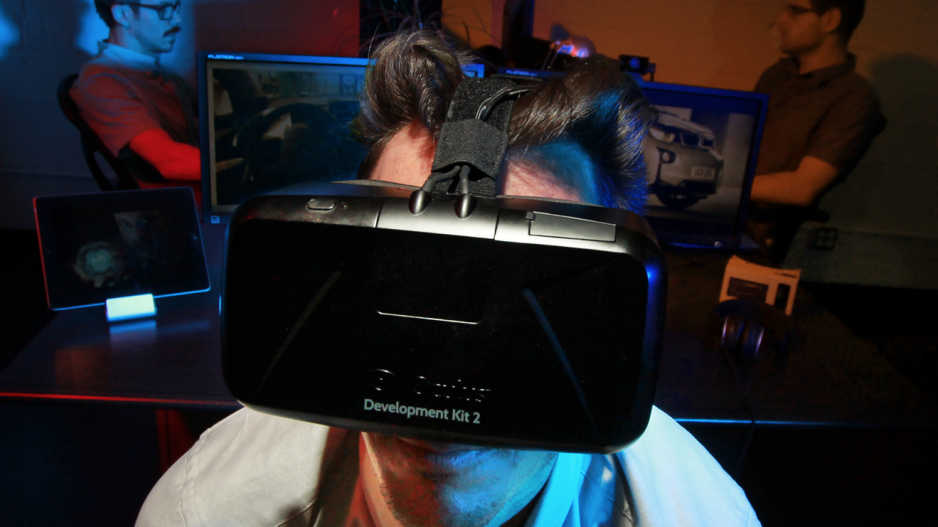Duncan Stewart can easily picture a family walking into a North Vancouver real estate agent’s office and donning a virtual reality headset to view a home before stepping foot inside.
One family member may not like the green wallpaper, so the VR device makes the wallpaper appear blue.
“Don’t you think that it would sell?” asks the director of research at Deloitte.
Stewart, who is presenting his 2016 predictions for technology, media and telecommunications at the Vancouver Playhouse on January 25, is bullish on the enterprise market for VR headsets.
That would involve anything from real estate to training health care professionals.
But Stewart doesn’t see the market taking off for consumer VR sets just yet. In those cases, users would be sitting on couches in their living rooms to watch entertainment programming.
“It’s real anti-social,” said Stewart, who prefers petting his dog while watching TV with the family — he doesn’t see that happening if he’s completely immersed in an environment.
Deloitte’s own report on 2016 Canadian technology, media and telecommunications trends concluded VR would remain a “niche market” this year.
While the sector is supposed to generate US$1 billion in sales globally, just $30 million of that will come from Canadian sales, the report estimated.
“Most of the content is gaming. It’s fairly easy to create an immersive game — it’s fairly hard making a TV show, or a movie or a sportscast,” Stewart said.
But a number of Metro Vancouver firms are making headway in the non-gaming markets.
Surrey’s Conquer Mobile develops VR technology to train healthcare professionals.
Meanwhile, Vancouver’s Idea Rebel has signed deals with BMW, Audi and Converse to produce VR content for consumers.
In July 2015, CEO Jamie Garratt told Business in Vancouver, “five years from now, I think everyone’s going to have an Oculus Rift-type (VR) device in their house.”
As for other technology that may take a little while longer to gain traction, the Deloitte report predicts just 0.3% of mobile device owners in Canada will use ad blockers by the end of 2016.
“Desktop ad-blocking is a real thing and it’s having a genuine impact on digital media and digital advertising,” Stewart said.
But the Deloitte report determined 86% of time spent on mobile devices is in apps. But mobile ad-blockers can only work in browsers (where users spent 14% of their time on mobile devices) and just 40% of Canadian mobile devices are going to have ad-blocking capability built into them.
Deloitte estimates only 0.3% of Canadian mobile device users will employ a mobile ad-blocker this year.
“Installing a mobile ad-blocker on your mobile device has almost no effect on the number of ads you see,” Stewart said.
Vancouver tech firms like Tagga and Sidebuy, meanwhile, are counting on content generated and targeted through social media to make up whatever gaps exist through blocked ads.
Tagga collects data from users to build profiles that allow marketers to zero in on specific audiences without the buckshot-like use of ads.
Sidebuy has developed a platform that works as an exchange between brands and fashion bloggers. Apparel companies looking to promote their brands link up with Sidebuy’s network of fashion bloggers to drive consumers to their retail websites, while the bloggers are in turn paid for the content they create on their own blogs.
In both cases, the companies are sidestepping the traditional role of mobile ads to target people with specific content.
And Deloitte report predicts that it’s likely mobile ad-blockers will place less than US$100 million of ad revenue at risk in 2016. That accounts for 0.14% of the US$70-billion global mobile advertising market.
@reporton



